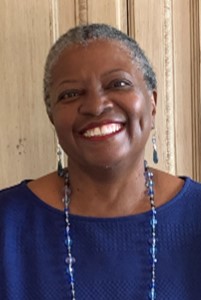47th Annual MPS Symposium


April 20, 2024
-

8:15 am to 4:30 pm
This event already took place.
Co-Chairs: Robin Rayford, M.A., Kristen Beesley, Ph.D., and Sally Rosenberg, D.O.
THE RACIALIZED MIND
ACROSS THE LIFE CYCLE:
PSYCHOANALYTIC PERSPECTIVES
(HYBRID EVENT)
Saturday, April 20, 2024
8:15 AM – 4:30 PM (Eastern Time)
The St. Regis Hotel
3071 W. Grand Blvd, Detroit, Michigan
Featuring:

Dionne Powell, M.D.
Distinguished Guest Speaker

Beverly Stoute, M.D.
Distinguished Guest Speaker

Robin Rayford, M.A.
Moderator and Co-Chair
Introduction and Practice Gap/Need:
The MPS 47th Annual Symposium brings together two distinguished scholars and practitioners who will invite us to consider how cultural and historical elements and events impact our unconscious and, therefore, our intra-psychic perspectives. Our speakers will present leading-edge material throughout what promises to be an informative and enlightening day. We will engage in small group discussions to reflect on and consider how existing social/cultural systems of thought relative to race, racism, trauma, and anxiety impact our perspectives and, therefore, our relationships with our patients and each other. The critical thinking of these great modern-day thinkers offers theoretical frameworks essential in preparing us to address racialized issues as they will inevitably present in the clinical setting.
Our Distinguished Speakers and Their Presentations:
Dionne R. Powell, M.D. (New York)
Title: Transgenerational Racial Ghosts: Theoretical and Clinical Implications
Dr. Powell will draw our attention to the racial: how concepts of whiteness, blackness, and the racial other are convenient yet superficial and non-dynamic signifiers with the potential to interfere in the recognition and working through racial trauma regardless of the racial pair. Utilizing Freud, Laplanche, Loewald and others, with examples from the creative arts, and clinical vignettes to demonstrate how race is embodied and symbolized in mind opens this therapeutic aperture for further theoretical, and clinical use.
Beverly J. Stoute, M.D. (Atlanta)
Title: The Rage-Out Rage Paradigm: How Culture Seeps its Way into Our Minds
Dr. Stoute will help us to understand how we internalize culturally defined propositions about race and inclinations to discriminate as we grow up that reflect our psychosocial history of slavery and its legacy of racial discrimination and terror. Over generations, a cultural template of destructive sadism, through a repetition compulsion, results in learned silence and group enactments of racism. The template formulated here elaborates a framework for the psychodynamic understanding of racial enactments that goes beyond typical explanations of group psychology and forces us to reflect, as Fanon did, on how culture seeps its way into our minds?
Educational Objectives:
- Participants will be able to identify how, in Toni Morrison’s words, we are all “raced people” as an intra-psychic, dynamic process and how this becomes shaped in mind.
- Participants will be able to identify the transgenerational component contributing to the dynamic of becoming “raced” and our field’s resistance(s) to such recognition.
- Participants will be able to discuss the dynamic working through race, racial enactments, and racial trauma as a part of the analysts’ working function for its clinical and therapeutic utility.
- Participants will be able to identify the developmental trajectory in childhood of how cultural propositions about race are internalized in the socialization process and how that impacts the awareness of racial attitudes in adulthood.
- Participants will be able to discuss in psychoanalytic terms the differential ways that people experience racial enactments based on their ethnic-racial identification.
- In a small group setting, participants can apply the transgenerational components of being “raced” and understand how they contribute to racialized enactments to improve how we work with patients.

 Brochure of Educational Programs
Brochure of Educational Programs